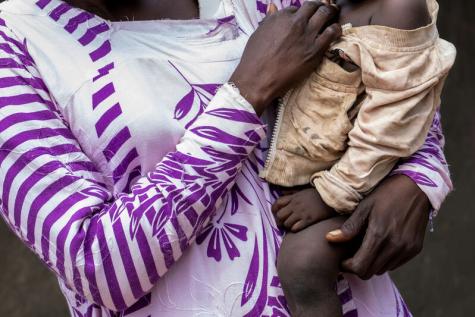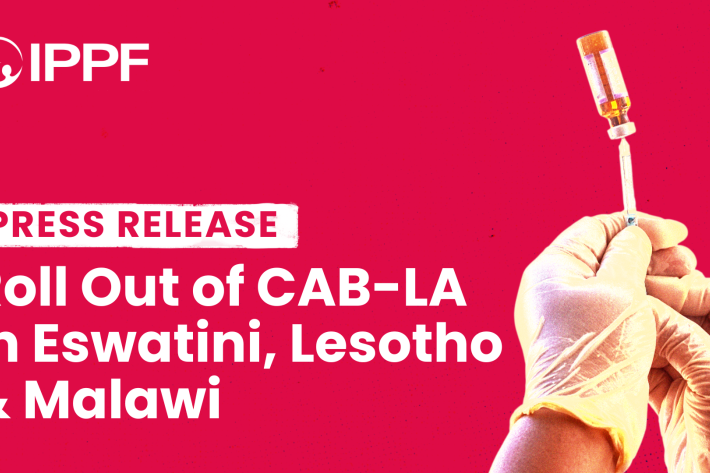Latest press releases
A selection of stories from across the Federation

Tanzania
Almost US$10 mil in US-Funded Contraceptives May Go to Waste in Belgium as Trump Administration Keeps Them In Holding
The Trump administration is holding over $9.7 million of U.S.-funded contraceptives set to be destroyed, with 77 percent of these resources destined for five countries in the African region.
For media enquiries
Telephone:
+44 7918 845944Email IPPF:
Email: media@ippf.org

| 12 March 2025
Japan Funds New $400,000 Project to Support Maternal and Reproductive Health in Afghanistan
12th of March, 2025 – A new project titled “Meeting the Urgent Needs of Marginalised Populations in Crisis-Affected Provinces through Provision of Quality Reproductive and Maternal Child Health Services” has been launched. Funded by the Government of Japan and implemented by the Afghan Family Guidance Association (AFGA), an IPPF Member Association, the project aims to improve access to essential reproductive and maternal health services for vulnerable populations in Afghanistan's crisis-affected provinces. With ongoing challenges from natural disasters, internal displacement, and a fragile healthcare system, comprehensive reproductive and maternal health services in Afghanistan are urgently needed. The project will focus on Logar and Parwan provinces, where communities continue to face significant barriers to accessing vital maternal, newborn, and reproductive healthcare. This initiative will provide high-quality, clinic-based services, including safe delivery care, prenatal and postnatal services, and psychosocial support services (PSS). In addition to clinical care, the project will focus on community outreach and capacity-building programs, empowering individuals with the knowledge and resources needed to make informed decisions about their reproductive health. Key activities and expected outcomes include: Strengthening 21 health centres in Logar and Parwan provinces to provide essential reproductive and maternal care services. This will benefit over 40,000 people, with an estimated 120,000 health services delivered to the local population. Comprehensive reproductive and maternal health services including prenatal and postnatal care for over 2,500 pregnant women, ensuring healthy pregnancies and deliveries. Safe deliveries will take place at Family Health Houses, ensuring the health and safety of mothers and babies. Breast and cervical cancer screening and referrals for over 30,000 women. Psychosocial support through counselling and mental health services. Community outreach and education to raise awareness on reproductive health and rights and family planning. Training local healthcare providers to improve their skills in reproductive healthcare, maternal care, and other essential services - enhancing the overall quality of care provided. H.E. Mr. KUROMIYA Takayoshi, the Ambassador of Japan to Afghanistan, commented, “In Afghanistan, communities affected by crises need urgent access to essential maternal and reproductive health services. This project reflects Japan’s continued dedication to supporting those most severely affected to ensure leaving no one behind.” Dr. Abdul Qayum Azeemi of AFGA, said, “The health of women and children in Afghanistan has always been at the heart of our work. This project will not only provide life-saving maternal and reproductive health services, but it will also help strengthen the healthcare infrastructure in the regions most affected by crises. Together with Japan’s support, we can ensure that those facing the greatest challenges have access to the care they need for a healthier future.” Valerie Dourdin, IPPF Global Humanitarian Director, added, “For years, women and girls in Afghanistan have faced significant barriers to accessing essential health services. Now, more than ever, it is critical that we increase our support. This project will provide life-saving care, offering these communities the health services they so urgently need.” --- About AFGA The Afghan Family Guidance Association (AFGA) is an NGO that advocates for reproductive health and rights and provides quality maternal and reproductive health services across Afghanistan. AFGA is committed to empowering individuals to make informed decisions regarding their health, particularly in underserved and vulnerable communities. About IPPF The International Planned Parenthood Federation (IPPF) is a global healthcare provider and a leading advocate for reproductive health and rights. Established in 1952, in India, IPPF operates in over 146 countries through its network of autonomous member associations.

| 19 June 2024
IPPF Statement on the Ongoing Violence in Haiti
Haz click aquí para leer este posicionamiento en español The International Planned Parenthood Federation (IPPF) is deeply concerned about the escalating violence and political instability in Haiti, particularly its disproportionate impact on women and girls since March 2024. This crisis is expected to leave 3,000 pregnant women without essential medical care, leading to nearly 450 women experiencing life-threatening childbirth complications. With almost 580,000 Haitians displaced, women and girls are experiencing an alarming surge in sexual and gender-based violence (SGBV), including rampant sexual assaults, torture, and collective rape by armed groups. From January to March 2024, there were 1,793 SGBV incidents reported. Conflict-related insecurity has also significantly increased negative coping mechanisms, contributing to the rise in SGBV, as well as sexually transmitted infections and HIV. The ongoing violence is preventing access to essential sexual and reproductive healthcare services, endangering the lives of mothers and newborns. Our partner in Haiti, the Haiti Midwives Association, informed us, ‘the gangs prohibit the movement of motorcycles and pedestrians, threatening and sometimes shooting in the air to terrorise us further. Due to these difficult conditions, fewer and fewer patients are attending the hospital, whether for prenatal consultations, deliveries or postnatal care.” This inaccessibility has led to a significant increase in maternal and infant mortality. Eugenia López Uribe, Regional Director of the IPPF Americas & the Caribbean, said, “Humanitarian aid must be granted access through local organisations, such as our partner the Haiti Midwives Association, and their wellbeing must be guaranteed in this process. Women and girls can no longer wait! Our partner has provided access to vital emergency services such as pregnancy, childbirth and postpartum care, as well as care after sexual violence for 20 years. However, since February, they have been forced to stop their activities because of the imminent risks they face as women living in Port-au-Prince and surrounding areas.” On this International Day for the Elimination of Sexual Violence in Conflict, IPPF calls for zero tolerance toward any form of SGBV and demands the immediate protection of Haitian women, children, and those most at risk. We strongly call for unhindered humanitarian access to allow aid into Haiti. This aid must be designed and controlled by local NGOs and aid workers, and any foreign peacekeepers must safeguard and protect local communities - in particular their sexual and reproductive rights - so mistakes of the past are not repeated. Let’s not forget: Haiti's poverty and instability has been shaped by decades of foreign occupation and colonialism. The international community owes Haiti more than mere condolences; they owe an unwavering commitment to a future where human rights, including sexual and reproductive health rights are respected and protected, and nobody is left behind.
















